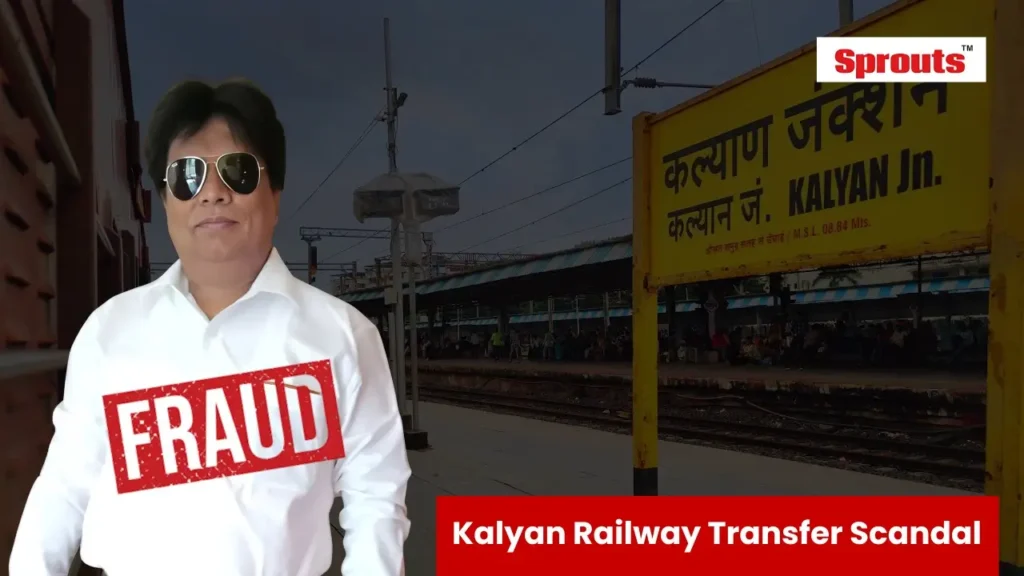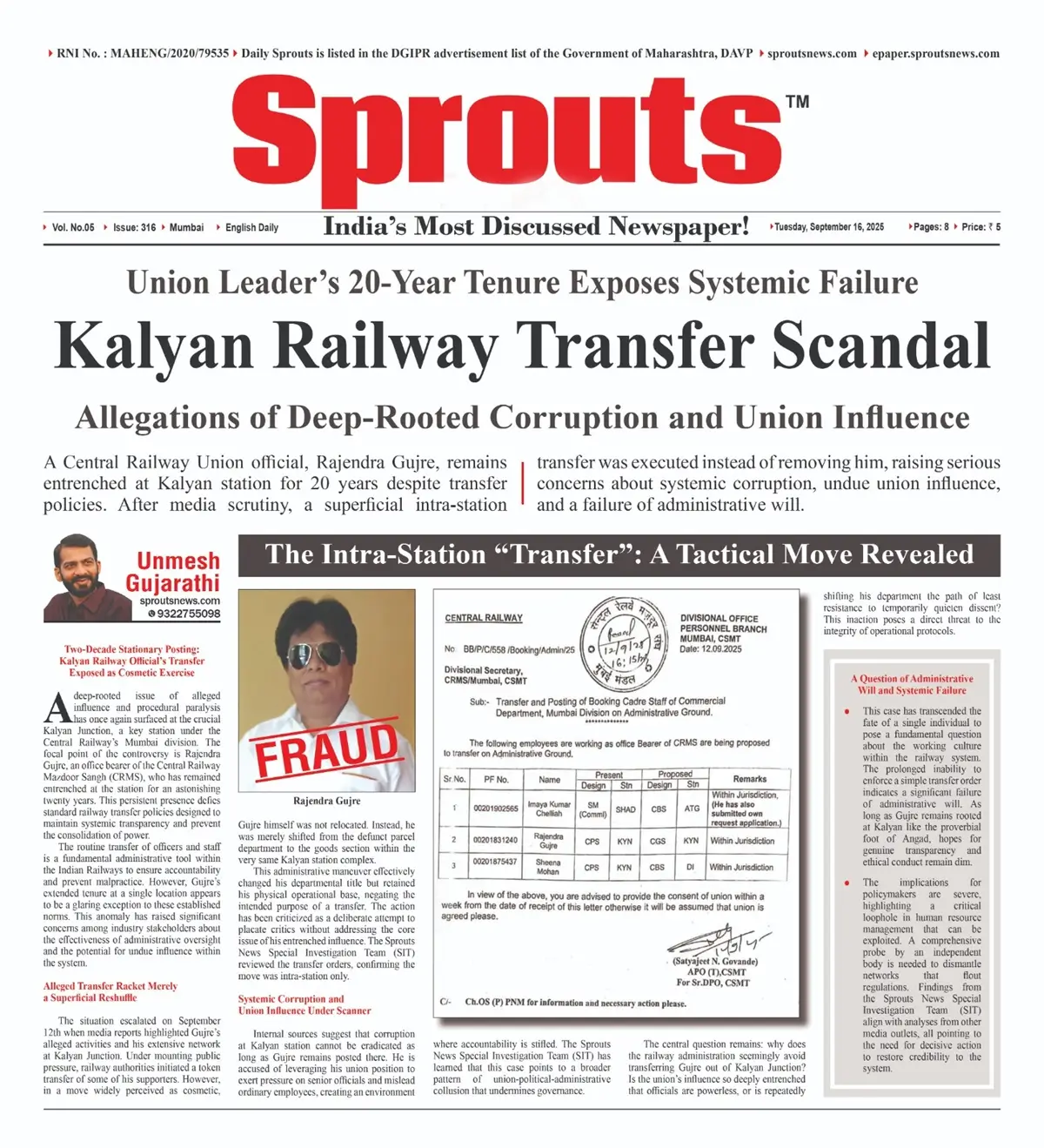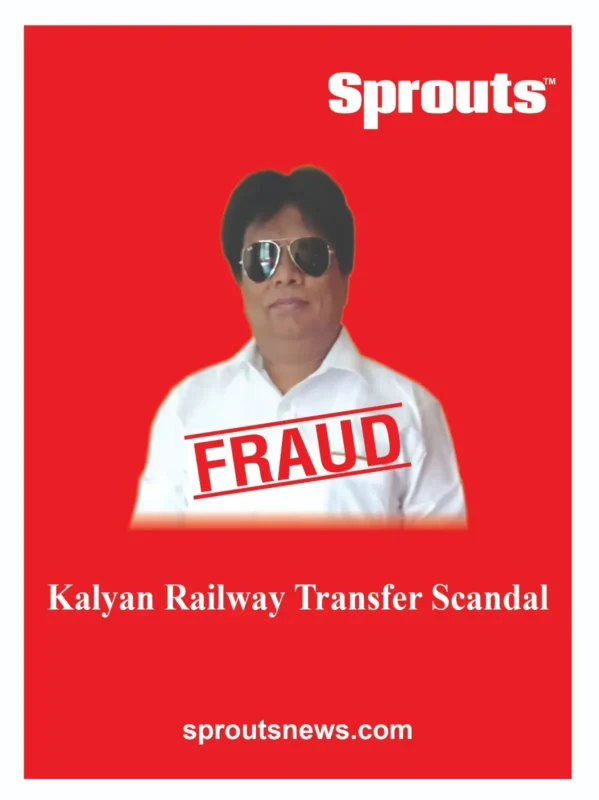Kalyan Railway Transfer Scandal
• Union Leader’s 20-Year Tenure Exposes Systemic Failure
• Allegations of Deep-Rooted Corruption and Union Influence
• The Intra-Station “Transfer”: A Tactical Move Revealed
A Central Railway Union official, Rajendra Gujre, remains entrenched at Kalyan station for 20 years despite transfer policies. After media scrutiny, a superficial intra-station transfer was executed instead of removing him, raising serious concerns about systemic corruption, undue union influence, and a failure of administrative will.
- Kalyan Railway Transfer Scandal
- • Union Leader’s 20-Year Tenure Exposes Systemic Failure
- • Allegations of Deep-Rooted Corruption and Union Influence
- • The Intra-Station “Transfer”: A Tactical Move Revealed
- Two-Decade Stationary Posting: Kalyan Railway Official’s Transfer Exposed as Cosmetic Exercise
- Alleged Transfer Racket Merely a Superficial Reshuffle
- Systemic Corruption and Union Influence Under Scanner
- A Question of Administrative Will and Systemic Failure
Two-Decade Stationary Posting: Kalyan Railway Official’s Transfer Exposed as Cosmetic Exercise
A deep-rooted issue of alleged influence and procedural paralysis has once again surfaced at the crucial Kalyan Junction, a key station under the Central Railway’s Mumbai division. The focal point of the controversy is Rajendra Gujre, an office bearer of the Central Railway Mazdoor Sangh (CRMS), who has remained entrenched at the station for an astonishing twenty years. This persistent presence defies standard railway transfer policies designed to maintain systemic transparency and prevent the consolidation of power.
The routine transfer of officers and staff is a fundamental administrative tool within the Indian Railways to ensure accountability and prevent malpractice. However, Gujre’s extended tenure at a single location appears to be a glaring exception to these established norms. This anomaly has raised significant concerns among industry stakeholders about the effectiveness of administrative oversight and the potential for undue influence within the system.
Click Here To Download the News Attachment
Alleged Transfer Racket Merely a Superficial Reshuffle
The situation escalated on September 12th when media reports highlighted Gujre’s alleged activities and his extensive network at Kalyan Junction. Under mounting public pressure, railway authorities initiated a token transfer of some of his supporters. However, in a move widely perceived as cosmetic, Gujre himself was not relocated. Instead, he was merely shifted from the defunct parcel department to the goods section within the very same Kalyan station complex.
This administrative maneuver effectively changed his departmental title but retained his physical operational base, negating the intended purpose of a transfer. The action has been criticized as a deliberate attempt to placate critics without addressing the core issue of his entrenched influence. The Sprouts News Special Investigation Team (SIT) reviewed the transfer orders, confirming the move was intra-station only.
Also Read: FIR Delay Against Self-Proclaimed Spiritual Leader Rupesh Rajeshirke Raises Questions.
Systemic Corruption and Union Influence Under Scanner
Internal sources suggest that corruption at Kalyan station cannot be eradicated as long as Gujre remains posted there. He is accused of leveraging his union position to exert pressure on senior officials and mislead ordinary employees, creating an environment where accountability is stifled. The Sprouts News Special Investigation Team (SIT) has learned that this case points to a broader pattern of union-political-administrative collusion that undermines governance.
The central question remains: why does the railway administration seemingly avoid transferring Gujre out of Kalyan Junction? Is the union’s influence so deeply entrenched that officials are powerless, or is repeatedly shifting his department the path of least resistance to temporarily quieten dissent? This inaction poses a direct threat to the integrity of operational protocols.
A Question of Administrative Will and Systemic Failure
This case has transcended the fate of a single individual to pose a fundamental question about the working culture within the railway system. The prolonged inability to enforce a simple transfer order indicates a significant failure of administrative will. As long as Gujre remains rooted at Kalyan like the proverbial foot of Angad, hopes for genuine transparency and ethical conduct remain dim.
The implications for policymakers are severe, highlighting a critical loophole in human resource management that can be exploited. A comprehensive probe by an independent body is needed to dismantle networks that flout regulations. Findings from the Sprouts News Special Investigation Team (SIT) align with analyses from other media outlets, all pointing to the need for decisive action to restore credibility to the system.



















Baseless news has been spread without checking facts, intention known only to him.
Will send notice & lodge complaint for defaming my image